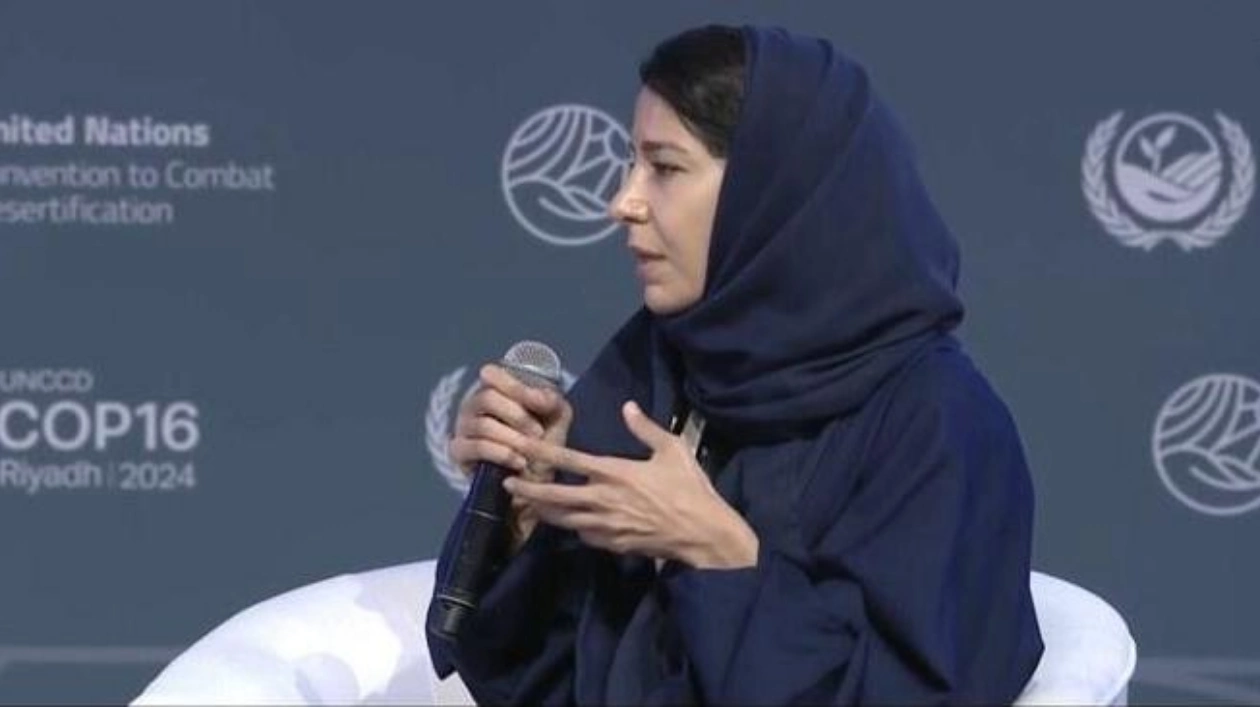RIYADH: Experts at COP16 have highlighted the necessity of increasing funding for sectors vital to land conservation and nature restoration, citing the potential for enhanced global economic development and job creation.
Climate financing has nearly doubled in the past decade, reaching approximately $1.3 trillion from 2021 to 2022, according to Tillem Burlace, regional lead at 1t.org, World Economic Forum. Burlace, speaking to Arab News on the sidelines of COP16, which runs from Dec. 2 to Dec. 11, noted that these funds are not being allocated efficiently.
She explained that most of this financing is directed towards energy (44 percent) and transport (29 percent), which are crucial for achieving net-zero goals. However, investments in agriculture, forestry, and other land uses have been minimal, receiving only 4 percent.
Burlace emphasized that this imbalance presents a significant obstacle to achieving land degradation neutrality and drought resilience, key objectives under the UN Convention to Combat Desertification at COP16 and beyond. Research by the WEF suggests that transitioning to a sustainable 'nature economy' could generate $10 trillion in business opportunities and create 395 million jobs by 2030.
Burlace also mentioned that innovative financing models are essential to aggregate capital while mitigating risks. Princess Noura bint Turki Al-Saud pointed out that the UNCCD often operates with limited political support, insufficient funding, and fragmented implementation.
During a panel session at COP16, Princess Noura, a founding partner at Aeon Strategy, underscored the challenges facing the convention. She argued that to realize its transformative potential, the convention must be elevated as a political priority, integrated into international development plans, and supported by substantial financial and technical commitments.
Princess Noura highlighted the ongoing difficulties in quantifying financial and capacity gaps necessary for effective land restoration. She noted that out of 63 National Drought Plans evaluated, only nine countries have quantified their financial needs. Additionally, only 13 of 38 countries have expressed their resource needs in financial terms under the UNCCD’s progress indicators.
This lack of financial data reflects broader challenges in calculating restoration, capacity building, and governance costs. Princess Noura asserted that investing in land restoration yields substantial returns, with research indicating that every dollar spent can generate up to $30 in returns.
She emphasized that healthy land ecosystems are crucial for global development, as half of the world’s GDP depends directly or indirectly on healthy soil ecosystems. Princess Noura concluded that investing in land restoration is not only an environmental imperative but also an economic necessity.
Capacity building throughout the project cycle is crucial, but it must be accompanied by targeted financial and technical support. Her remarks echo the growing consensus at COP16 on the importance of integrating sustainability into global economic and development policies.
Nigel Topping, the UN Climate Change High-Level Champion from the COP26 Presidency, stressed the importance of translating environmental and social needs into financial terms to engage key decision-makers. He highlighted the need for broader financial needs assessments to align public and private sector efforts in addressing systemic challenges such as land degradation, drought, and biodiversity loss.
Source link: https://www.arabnews.com






